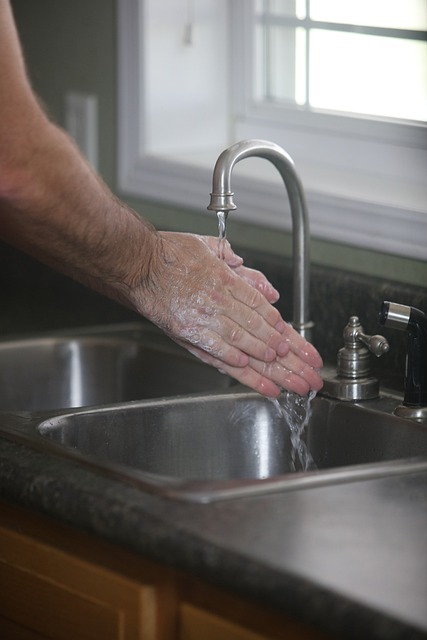Optimizing rest involves understanding and aligning with natural sleep cycles, influenced by light and darkness, to regulate patterns. Regular exercise improves sleep quality, focusing on moderate-intensity sessions earlier in the day for ideal results. Creating a relaxing bedtime ritual signals wind-down time, while a peaceful sleep environment enhances rest and relaxation, supporting fitness goals. By implementing these strategies, individuals can significantly improve sleep quality, fostering a positive cycle that benefits overall health and exercise initiatives.
Struggling with sleep? You’re not alone. Quality rest is essential for overall health and well-being, yet it’s often overlooked in our busy lives. This article provides practical tips to transform your sleep habits through evidence-based strategies. We explore the power of understanding your sleep cycle, incorporating regular exercise into your fitness and exercise plans, creating calming bedtime rituals, and optimizing your sleep environment. By implementing these simple changes, you can improve your relaxation, boost energy levels, and enhance overall quality of life.
- Understand Your Sleep Cycle and Needs
- Incorporate Regular Exercise into Your Routine
- Create a Calming Bedtime Ritual
- Optimize Your Sleep Environment
Understand Your Sleep Cycle and Needs

Understanding your sleep cycle is a key step in optimizing rest and relaxation. Our bodies naturally follow a 24-hour rhythm, known as the circadian cycle, which regulates various physiological processes, including sleep. This internal clock is influenced by light and darkness, so maintaining a consistent sleep schedule aligns with its natural ebb and flow. By recognizing your body’s unique sleep patterns, you can tailor your bedtime routines accordingly. For instance, if you’re a ‘night owl,’ going to bed earlier might be more suitable, allowing for a fuller night’s rest.
Incorporating fitness and exercise plans into your routine can also positively impact your sleep quality. Regular physical activity helps regulate hormones that control sleep-wake cycles, making it easier to fall asleep and promoting deeper, more restorative sleep. However, timing is crucial; intense workouts close to bedtime might energize you, disrupting sleep. Aim for morning or afternoon exercises, leaving enough time for relaxation before bed, and your fitness plans can become a valuable tool in enhancing overall rest and rejuvenation.
Incorporate Regular Exercise into Your Routine

Incorporating regular exercise into your daily routine is a powerful strategy to enhance sleep quality and overall relaxation. Physical activity plays a pivotal role in regulating your body’s internal clock, helping to synchronize your sleep-wake cycle. Aim for a mix of aerobic exercises like walking, running, or cycling, and strength training sessions to keep your body active and balanced. These activities not only promote better sleep but also contribute to improved mental well-being, reducing stress levels that often interfere with peaceful slumber.
When crafting your fitness and exercise plans, consider the timing. Evening workouts can be ideal for winding down, as they signal to your body that it’s time to prepare for rest. However, avoid intense exercises close to bedtime, as this might have the opposite effect, making it harder to fall asleep. Instead, opt for moderate-intensity sessions earlier in the day or incorporate relaxation techniques like yoga or stretching routines before sleep to achieve a serene mindset and deep relaxation.
Create a Calming Bedtime Ritual

Creating a relaxing bedtime ritual is a powerful way to signal to your body and mind that it’s time to wind down. This calming routine can help improve sleep quality, making it easier to fall asleep and promoting deeper rest. Start by setting aside 10-15 minutes before bed for this purpose. Dim the lights, turn off electronic devices, and choose activities that nurture tranquility. Consider a warm bath, gentle stretching, or reading a book. Incorporating natural elements like lavender scents or soft, cozy sheets can further enhance the experience.
Regular fitness and exercise plans are also beneficial for sleep hygiene. Physical activity during the day helps regulate your body’s internal clock, making it easier to fall asleep at night. However, avoid intense workouts close to bedtime as this may stimulate energy levels, making it harder to relax. Instead, opt for lighter forms of exercise or yoga in the evening to help your body transition into a state of calm and prepare for a restful sleep.
Optimize Your Sleep Environment

Creating a peaceful sleep environment is a simple yet powerful way to enhance your rest and relaxation. Consider transforming your bedroom into a sanctuary for tranquility, starting with temperature control. Aim for a cool, comfortable temperature between 60-67°F (15-19°C), as this range is ideal for promoting deep sleep. Invest in quality bedding that supports your comfort and aligns with your fitness goals; breathable cotton or specialized performance fabrics can aid in staying cool during hot nights.
Minimize external distractions by blocking light with heavy curtains or an eye mask, and reduce noise with earplugs or a white noise machine. Create a calming ambiance with soft, warm lighting, and consider adding aromatic elements like lavender diffusers to promote relaxation. By optimizing your sleep environment, you’ll not only improve the quality of your rest but also set the stage for better fitness and exercise plans during the day.
By understanding your sleep cycle, incorporating regular exercise, cultivating a calming bedtime ritual, and optimizing your sleep environment, you can significantly enhance both sleep quality and overall relaxation. These practical tips, integrated into your daily routine, will contribute to better rest, improved mood, and increased productivity. Remember, achieving optimal sleep is an investment in your fitness and exercise plans, enabling you to tackle each day with renewed energy and focus.
